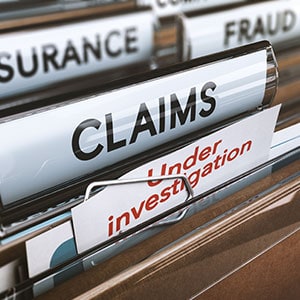
Is your insurance company not paying to fix your car or not paying a fair value for your car after an accident? If so, ORS 20.080 might be just the tool you need to fix that problem.
Mistakes happen, we all know it. That is why we have insurance. But what happens when the insurance companies don’t do the right thing and pay for those mistakes?
If you were involved in a motor vehicle crash (sometimes called motor vehicle accident or MVA), trucking accident, or motorcycle accident, the person who caused the damage should take responsibility. If the responsible party has insurance, that person’s insurance should fulfill the obligations of its insured. Sometimes, however, an insurance company does not do honor its obligations. For instance, the company may not pay for all the repairs, or cover the full value of vehicle (if totaled). They may refuse to pay for a rental car, or refute the diminished value of vehicle. If the insurance company is not paying what it should, you may have legal recourse.
How To Get Fair Compensation From An Insurance Claim
Oregon law, ORS 20.080 was established to help insured parties receive a fair deal from an insurance company. The law helps to level the playing field between an insurance company and an individual with a claim that is worth $10,000 or less. Practically speaking, bringing a claim for only a few thousand dollars might not be worth it, financially. After paying attorney fees and court costs, you could end up with less in your pocket than if you would have accepted the bad offer to begin with.
Insurance companies know this, and will sometimes try to exploit this economic reality and make unreasonably low offers. When that happens, ORS 20.080 can help you get the full amount you’re entitled to.
ORS 20.080 encourages insurance companies to make a reasonably fair offer in 30 days, and discourages the practice of making low-ball offers. How does it do that? The basic gist is if the plaintiff (the person who is bringing the claim):
- Makes a demand for $10,000 or less on the defendant (the at-fault person) and the defendant’s insurance company; and
- Recovers more at a trial or arbitration than the highest offer made before filing suit, then the defendant must pay the plaintiff’s underlying claim, AND the plaintiff’s attorney’s fees as well. On the other hand, if the company makes a reasonable offer, and the plaintiff does NOT beat highest offer, then the company does not have to pay plaintiff’s attorney fees.
The result is that when an insurance company attempts to play games and makes a low-ball offer, it runs the risk having to pay not only the real value of your claim, but also your attorney fees on top of that. If the insurance company had simply done the right thing at the outset and offered a fair value for your claim, it would have avoided the attorney fees and resolved the matter quickly.
Should You File A Claim?
If your claim is less than $10,000, ORS 20.080, might be just the solution for you. The part that is sometimes tricky is knowing what the fair value is; other factors may affect the value of your claim. For example, if you were physically injured, what injuries did you sustain? Was the car registered to you alone? Do you have a loss of use claim for the amount it costs to repair your vehicle or a diminished value claim? The answers to these questions and many others can affect the value of your claim.
Knowing whether to accept an insurance company’s initial offer or to fight for more can be a tough call. When you are at that point, it can be very helpful to receive sound legal advice about your specific situation. Speak with an experienced car accident attorney who can give you solid advice.
Here at Peton Law, we’re happy to talk with you about your insurance matters. We offer a free, no-obligation consultation to learn the specifics about your case and give you honest, candid advice. Contact us if you believe you need legal advice.


